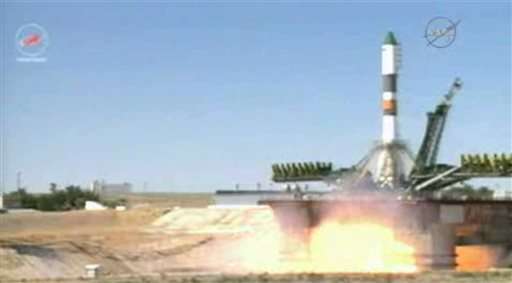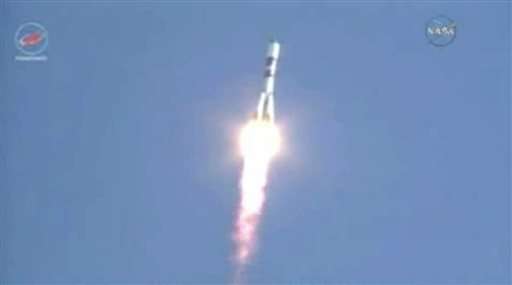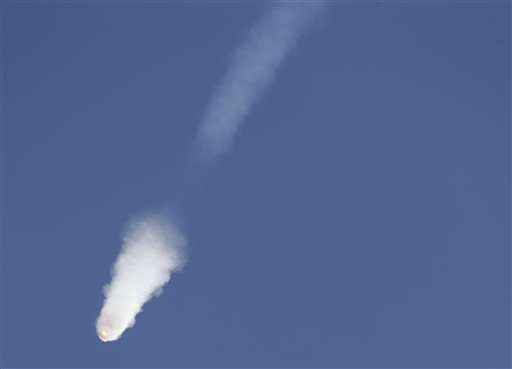Russian supply ship launched to International Space Station

A Russian booster rocket on Friday successfully launched an unmanned cargo ship to the International Space Station, whose crew is anxiously awaiting it after the successive failures of two previous supply missions.
A Soyuz-U rocket blasted off flawlessly from Russia-leased Baikonur launch pad in Kazakhstan, placing the Progress M-28M ship into a designated orbit, safely en route to the station. On Sunday, it's set to dock at the station currently manned by Russians Gennady Padalka and Mikhail Kornienko and NASA's Scott Kelly.
The ship is carrying 2.4 metric tons of fuel, oxygen, water, food and other supplies for the crew, the Russian space agency Roscosmos said.
The previous Progress launch in April ended in failure, and on Sunday a U.S. supply mission failed too when SpaceX's Falcon 9 rocket broke apart shortly after liftoff. The mishaps were preceded by last October's launch pad failure of Orbital Sciences' Antares rocket, also carrying station cargo for NASA.
Despite the failures, NASA said the station is well-stocked, with enough supplies for the crew to last at least until October.
However, the trouble-free launch Friday was essential for the station program, which has exclusively relied on Russian spacecraft for ferrying crews after the grounding of the U.S. shuttle fleet.
SpaceX still hopes to meet the target of launching astronauts from U.S. soil again aboard the Falcon-Dragon combination in December 2017, which would allow NASA to stop buying seats from Russia to get astronauts to the space lab.

The Soyuz rocket is used to propel both Soyuz manned spacecraft and Progress cargo ships to orbit, so the launch of the station's next crew of three has been pushed back from late May to late July as space officials have looked into the reason for the rocket failure in April.
Russian space officials eventually have traced the failure to a leak from fuel and oxidizer tanks in the booster's third stage, which they said was caused by a yet unspecified flaw in the interface between the cargo ship and the latest Soyuz modification, called Soyuz 2.

The Soyuz-U rocket used Friday is an older sub-type of the rocket, which has been the workhorse of Soviet and Russian space programs for nearly half-a-century. Last month, the Interfax news agency reported that the Russian space agency will only be using that Soyuz modification until experts fully understand the reason behind April's failure and fix the flaw.
The station program has been one of a few sectors where ties haven't been hurt by a bruising Russia-West showdown over the crisis in Ukraine.
© 2015 The Associated Press. All rights reserved.




















